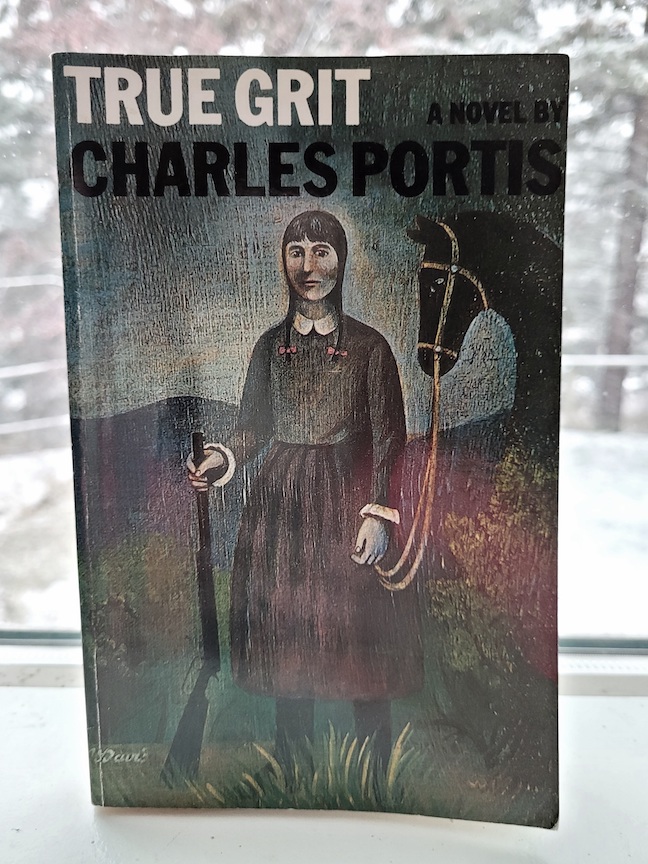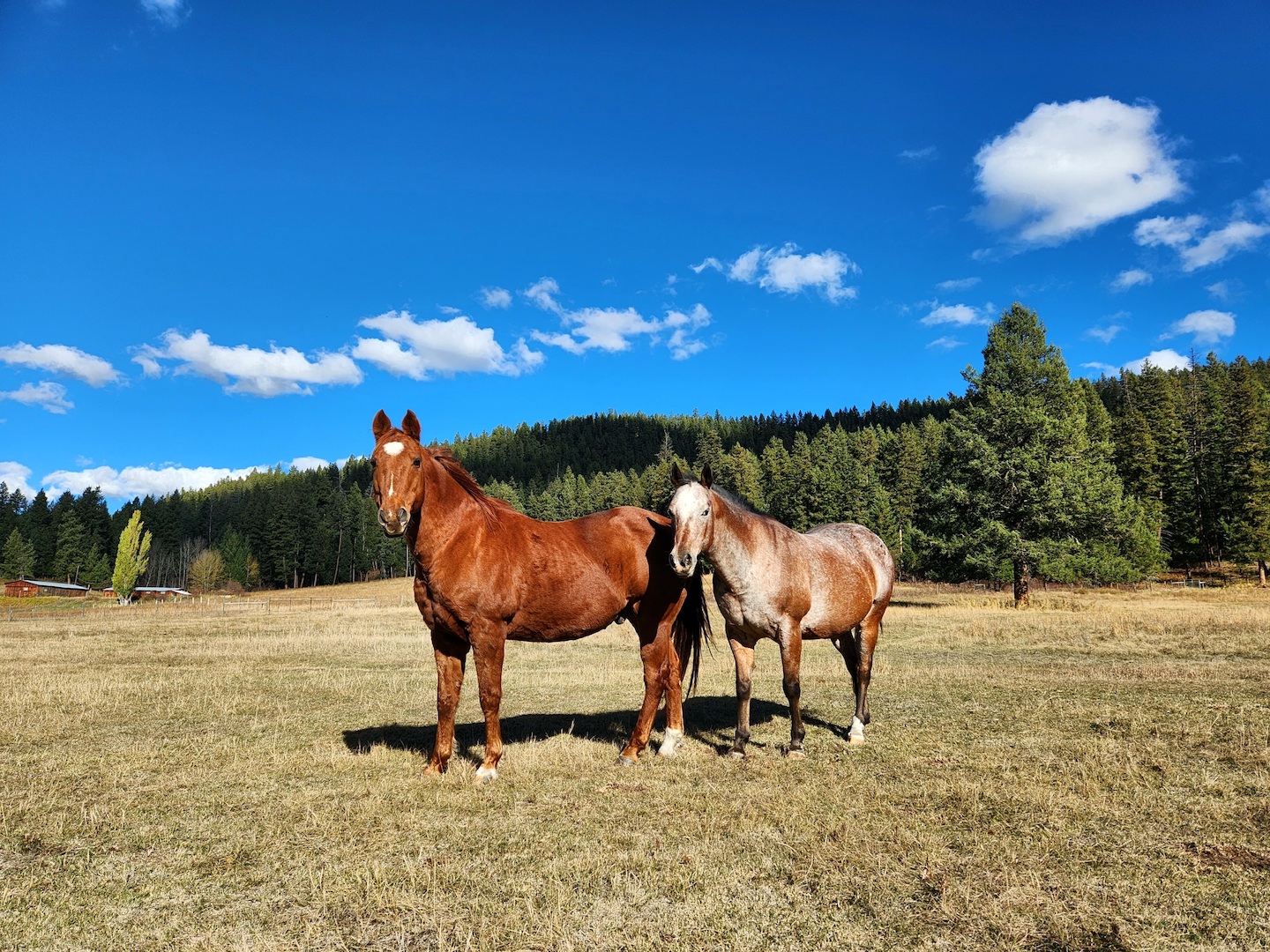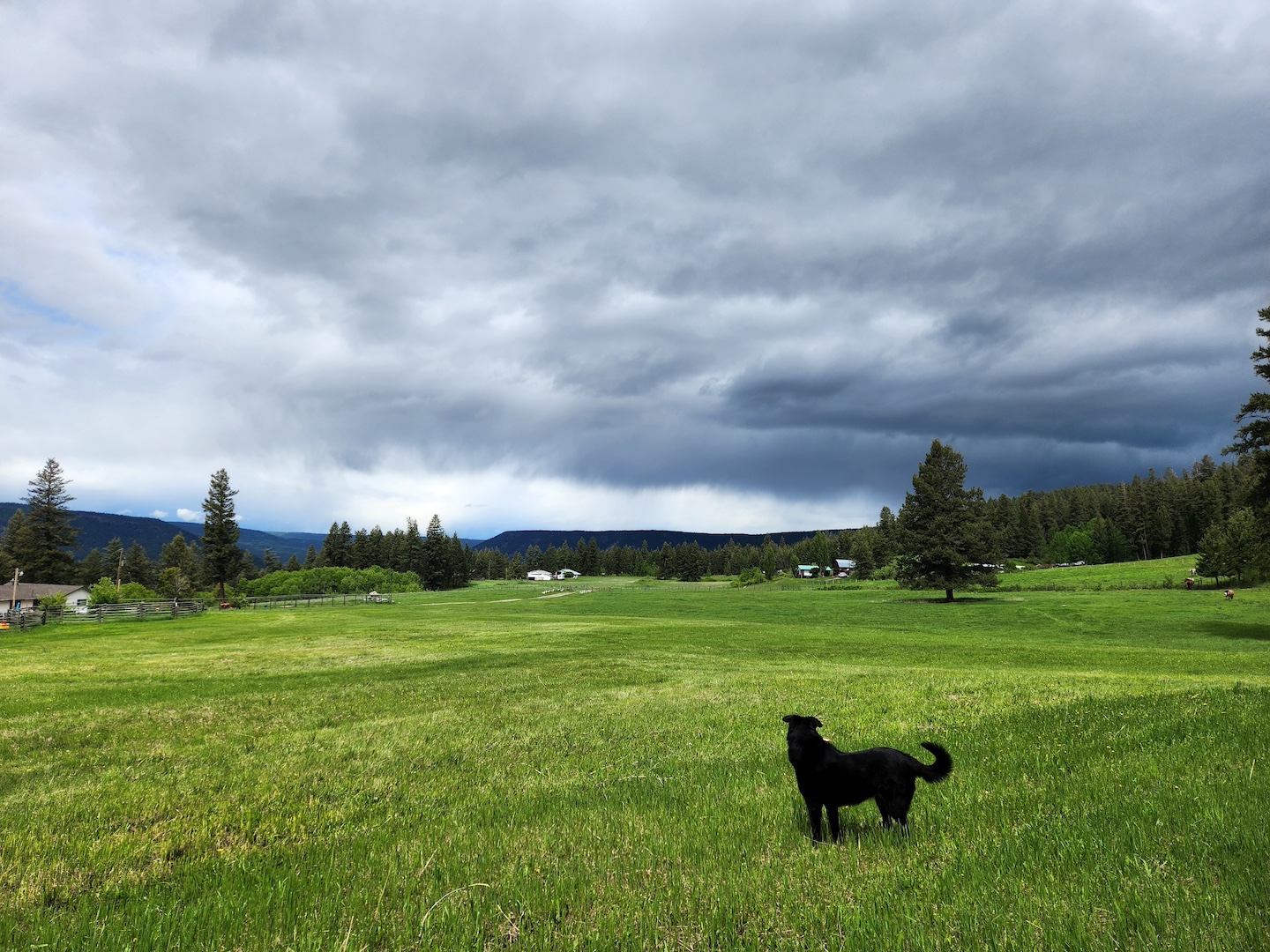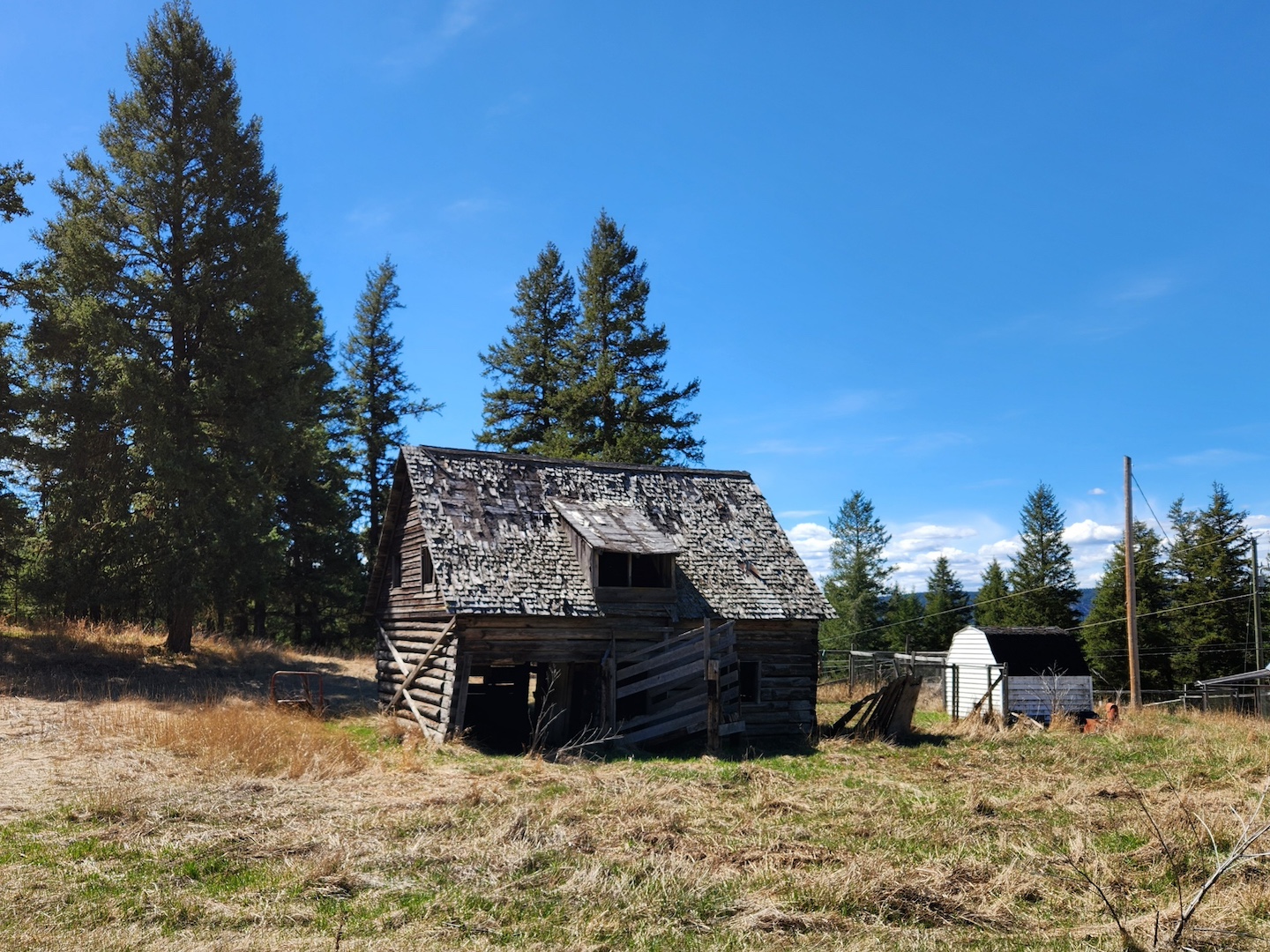Author: Charles Portis
Published: 1968
Mood: If you’ve been reading a lot of tediously large books lately and still want a quality Western adventure but something way less challenging and easier to read in bed.
If you’re a Western fan, there’s a pretty darn good chance you’ve seen the 1969 version of True Grit. Or the 2010 version of True Grit. Or even both. But did you know that this iconic tale actually started with a book?
(If you’ve read my review of the John Wayne version then of course you know that tidbit, and I’m sorry for the redundancy. But I have to get us all on the same page. Book pun intended.)
True Grit is a kind of scrawny and unassuming paperback that packs a wicked punch, which is a fantastic metaphor for its too-often-underestimated protagonist, Mattie Ross.
I legit thought it was a children’s book when I first picked it up, something about the cover art and font choices. It also doesn’t help that there’s a review from one of my all-time favourite children’s authors, Roald Dahl, on the back cover.
What starts out as a blunt, no-nonsense account of events narrated by a righteous teen slowly builds into a grand Western adventure.
Some reviews have called it a ‘coming of age novel’, but I disagree. That implies that it’s about Mattie maturing into adulthood. Instead, I think it’s the story of how the actions of an extremely strong and mature young woman change the man-children around her to be slightly better people.

The True Grit novel is Mattie Ross’s account of how at 14 years old she boarded a train to Fort Smith, hired Rooster Cogburn to hunt down her father’s killer, and rode into ‘Indian Territory’ with Cogburn and Texas Ranger LeBoeuf to bring down an outlaw.
Now, it isn’t that simple.
Literally everyone in this book wants Mattie to go home. She’s a capable teenager being mocked and patronized by every adult around her. But her father was murdered in cold blood by Tom Chaney, and the law isn’t doing its job. Nobody is searching for Chaney to bring him to justice, so Mattie does what women everywhere are used to doing – she does the damn thing herself.
Cogburn wants the paycheque. LeBoeuf wants to capture Chaney for a different crime. And Mattie just wants to see Chaney hang, but that failing, she wants to be the one to put a bullet in him.
Along the way, the horribly mismatched group encounters bad weather, painfully long rides, and no shortage of hapless criminals. They don’t particularly bond, and sometimes the men get distracted for a time by petty arguments and end up shooting up the rations (yup, just like in the movie – but in the book there’s a third lawman having just as much stupid fun and I’m not judging because shooting at stuff IS fun).
Will Mattie ever find Tom Chaney? Or will Rooster Cogburn get even drunker and lead them astray – or worse, into danger?
![]()
Mattie Ross isn’t a particularly likable character, especially if you enjoy a good time. She is not that.
But she’s a booksmart fast-talker who can handle any adult who gets in her way. From haggling over horses to chasing Cogburn and LeBoeuf across a river when they try to ditch her and never once complaining about her arduous journey, Mattie is unflinchingly brave and driven. You have to give her that.
Cogburn is introduced as a broke drunkard with questionable morals who may or may not have ridden with Quantrill’s Raiders. Mattie chooses him because he’s the meanest of the marshals – he has true grit – and he’s the one most likely to kill any outlaw who tries to escape. He warms up to Mattie right away, in his own way. You can tell he loves having an audience, and he respects her own grit.
LeBoeuf is arrogant, misogynistic, and childish. He’s prone to tantrums and SUPER abusive. As much as I think Matt Damon was brilliant as LeBoeuf in the 2010 movie, Damon’s natural sweetness gave the character something he completely lacks in the book. I don’t give a crap if he does a good deed or two in the end. He shows so little redemption that it’s hard to care about him at all.
The character that’s the most fascinating in both the book and the movies is Ned Pepper, the outlaw leading Tom Chaney along with his gang. You only meet Pepper toward the end, but he instantly has more layers than anyone else. He’s like the embodiment of lawful evil. He doesn’t want to hurt anyone who’s never crossed him, but he will also let innocent people die if it’s to his benefit.
![]()
True Grit is a bit like a Louis L’Amour novel, minus all of the vivid descriptions of scenery.
Like, turn L’Amour inside out, and have it be all about what people are saying and doing and their motivations, and you’d have True Grit. A great Western story that’s a little barebones in some aspects, but makes up for it with richness in others.
And then the last quarter of the book abruptly becomes so freaking tense that I defy you to stop reading even once.
All of a sudden this matter-of-fact narrative is packed with danger, emotion, and 10 pages of the such claustrophobic agony that I desperately wanted to skip ahead, but didn’t because that would be rude. And THEN if you are any kind of decent human you find yourself ugly crying over a horse.
I didn’t expect True Grit to put me through the ringer like that, especially after it started out so simple. The ending isn’t quite like the movies, either, so even if you feel like you’ve seen this already, there are new details throughout the book that add to what you took from the movies.
It does have some racist language that would be accurate for the narrative of a young girl from post-war Arkansas, although Mattie herself judges people solely on their character. If you’ve seen the movies, the language would come as no surprise. There are also a couple of weird scenes where LeBoeuf assaults Mattie, and he says that he would have “stolen a kiss” like it’s okay for a man in his 30s to kiss a teenager (and when she turns him down he calls her ugly, which goes to show that nothing has changed). But for that time and place, again, pretty accurate stuff.
Is it a good book for kids? I’m the WORST judge of that. As a teenager I’d have been bored, but I would have probably loved it in grade four. I was huge into Old West history at that age. But then again, I’d also seen Stephen King movies and the Rocky Horror Picture Show. Don’t listen to me on anything to do with appropriateness.
What I will say is that if you’re a grown-ass adult and you liked one of the True Grit movies, you can burn through this book in a night and feel like you read a classic and deserve a gold star.


